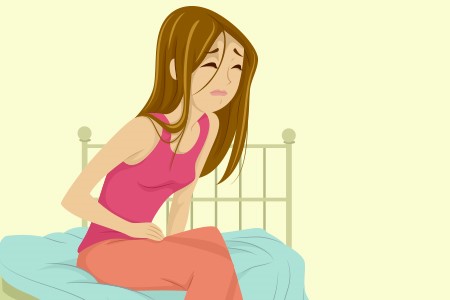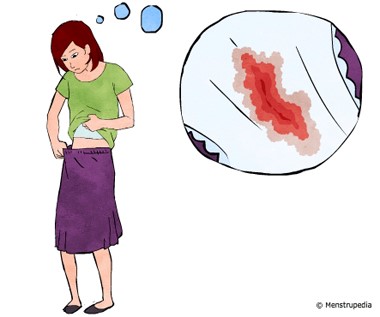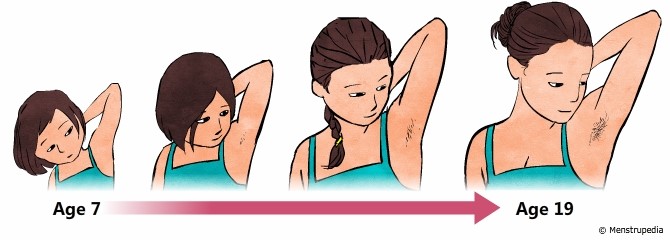|
|
Puberty is a transition stage from childhood to adulthood and usually happens during adolescence. It is a challenging phase where teens deal with various physical, psychological and emotional changes, which can lead to conflict within themselves and their surroundings. WHO (World Health Organization) stated that adolescence is between the age of 12-24 years. Puberty and age Puberty marks the maturity of sexual and reproductive health. For girls this means that she is able to have children. On average, the age of puberty for boys and girls is between 9-16 years. |
|
However, there are early and some late puberty which may be influenced by factors such as heredity, nutrition, chemicals in food and the environment. Teenage girls often reach puberty earlier than boys at an average age of between 12-13 years. Early puberty does not determine level of maturity. Family background, education, experiences and personality are among factors that can influence maturity’s level. |
|
|
PhysicalSigns of Puberty for Girls Source: Google |
Signs of puberty for girls is the first menstrual bleeding. Menstruation shows a teenage girl is fertile and her reproductive organs have begun to function. The first menstrual period usually lasts for only three to seven days with the frequency of once per month. The rate of change is different from one girl to another. These changes result from the action of hormones in the body. The female hormones, progesterone and estrogen will be released at puberty leading to body shape changes. Teenage girls will begin to produce ovum (eggs) and having periods. |
|
Some of the physical signs of puberty in girls:
|
Significant changes cannot be seen externally or physically, but the girls is still undergoing internal changes. Every girl develops differently and at her own pace, so do not worry. |
|
Emotional and Psychological Changes Along with the physical changes, there are also emotional and psychological changes :
Source: Google |
|
Dealing with teenage girls during puberty
Parents often face challenges in dealing with teenagers, especially teenage girls. Teenage girls are caught between childhood and adulthood. Sometimes they may act childish, but at other times, they seem very mature. Most parents are confused to either treat them like an adult or a child. Mostly do not know how to interact with their teens.
|
Puberty may be something new for your teenage girl, but it was certainly not a new experience for you, since you have gone through it and now it is time for you to help your teen to go through it. |
Here are some tips in dealing with teenage girls
Source: Google |
Preparation for girls to deal with puberty
|
Source: Google |
For adolescent girls, the arrival of the first period or menses is a very important event. Usually it is not a pleasant experience and unforgettable. Therefore, sufficient knowledge, preparation and support from those close to them especially parents can help reduce negative reactions such as fear or panic. Adolescence can be a phase of excitement, but it also stages a host of challenges. Thus, it is advisable for them to discuss, ask questions or seek answers through the right channel such as:
|
Overall, guidance from those around them including parents, families, teachers and schools as well as good religious education will help teenage girls to grow brilliantly.
Choose friends wisely, since teens tend to follow their peers’ behaviors and values. Try to be friends with those who usually seems to show positive moral values such as being helpful and respectful to others. In addition, teens are encouraged to interact with families and communities to improve their living skills.
Join the youth programs at school and communities such as PROSTAR Program, Peer Counselors, Young Doctors Club and Youth Day.
Naturally it would be more meaningful if teenagers learn and understand about their physical, emotional, mental and psychological changes during puberty. Respect, love yourself and your body.
References
- Azizi Yahaya, Jaafar Sidek Latif, Shahrin Hashim & Yusof Boon. (2005). Psikologi Sosial Alam Remaja. Kuala Lumpur: PTS Professional.
- Maznah Ismail. (1997). Cadangan Remaja Perempuan Mengenai Persediaan Untuk Menghadapi Haid.Jurnal Pendidik dan Pendidikan. Jilid 15.
- Yusof Abbas & Nor’Izam Alias. (2010). Psikoseksual Remaja Wanita : Dari Perspektif Biologi & Islam.
- http://drzubaidi.com/blog/remaja-dan-kitaran-haids-yang-tidak-teratur/
- www.parentingteens.com
| Last Reviewed | : | 3 August 2017 |
| Writer | : | Aina Mazwin binti Mohamed Radzi |
| Translator | : | Aina Mazwin binti Mohamed Radzi |
| Accreditor | : | Tn Hj Hairol Kamal bin Abd Rahman |


 Source: Google
Source: Google
 Source: Google
Source: Google
 Source: Google
Source: Google Source: Google
Source: Google






